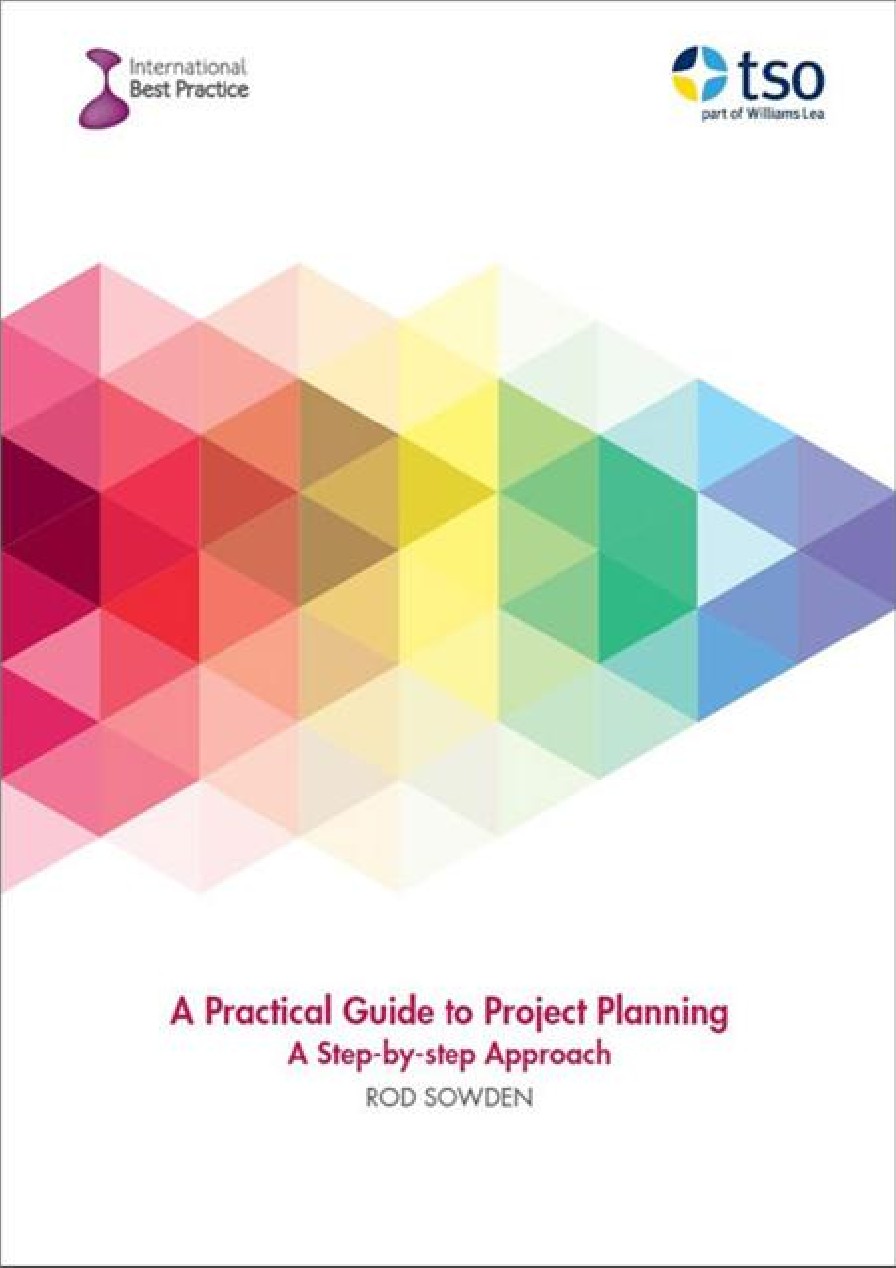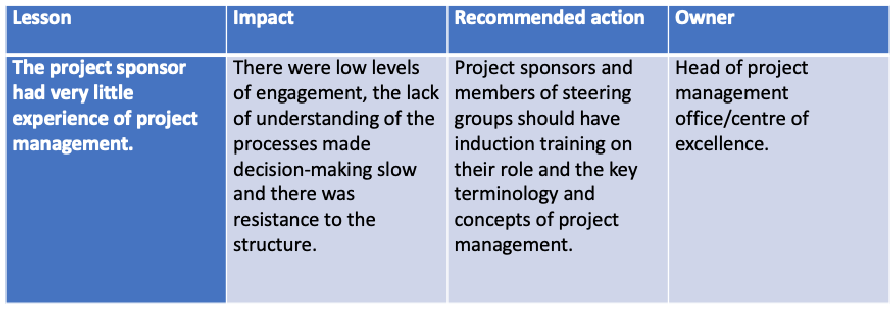eLearning Log in
Login here using your username and password
How do I capture lessons learned?
Introduction
‘We learn from history that we do not learn from history.’ Georg Wilhelm Friedrich Hegel
It is highly unlikely that the estimates for the project or stages will be correct first time, unless it is a project where there is a lot of experience and track record to draw on. So expect the plan to be recast and lessons to be learned; this is not failure, it is part of gaining experience and improving.
Tip
Acknowledging lessons to be learned is not acknowledging failure; failure to acknowledge and learn from lessons is the true failure.
Some lessons will be a reaction to unexpected events, while others will emerge simply from experience.
Lessons learned should be captured and shared with the project board openly and the impact of the lessons on this project and other projects should be understood.

This extract has been reproduced with permission from A Practical Guide to Project Planning, TSO 2016. If you’d like to read more you can purchase the copy of the book here.
Technique
One of the problems that organizations suffer from when managing lessons learned is that this activity is often left until the end of the project, when the lessons have been forgotten about or it is too late to benefit from them.
Lessons should be learned from day 1 of the project and continue to be learned until the project closes, so it should be a continuous activity to learn and improve. A good project manager will collect lessons learned as they happen, and, as a minimum, lessons should be learned and captured at the end of a stage. Lessons learned can be captured in a number of ways:
- Identifying them and including them in monthly progress reports
- Hosting workshops at key points in the project lifecycle to gather views on what has been learned and report to the project management office/centre of excellence accordingly.
Areas where valuable lessons for others might arise include:
- Accuracy of estimates
- Resource productivity
- Effectiveness of the project board
- Reliability of suppliers, in-house and external
- Risk and issue identification and impact assessments
- Unforeseen events that should been predicted
- Project management support
- Realism and engagement of stakeholders.
Example
The key information about each lesson can be captured in a simple table, where there are columns for the lesson, its impact, the recommended action and the owner. Table 5.11 shows an example for a lesson learned about the effectiveness of the project board.
Table 5.11 An example of the key information for a lesson learned

